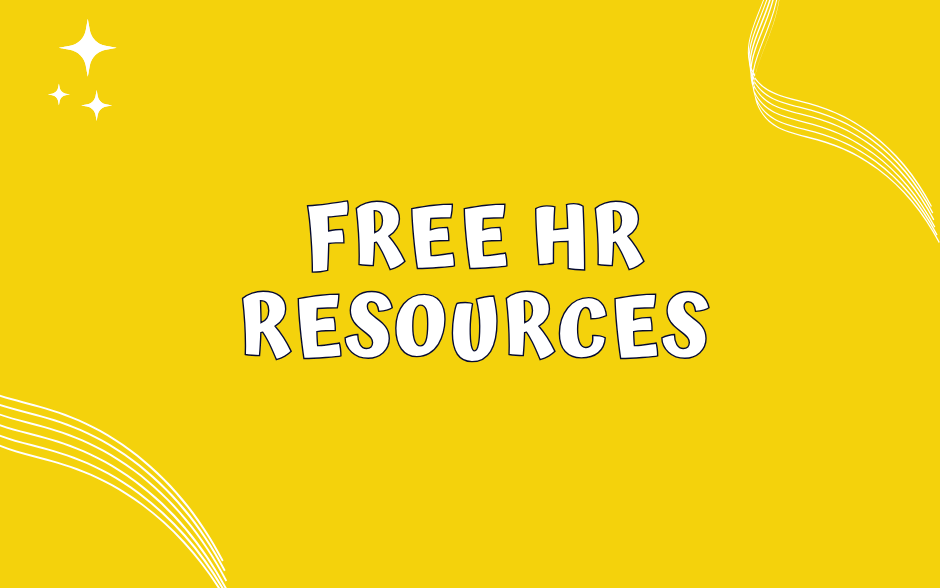It’s been a tough year. Am I doing enough to look after my team's wellbeing?

Hats off to you 🎩 if you’re an employer looking to do even more to support your staff through a truly one-of-a-kind year.
The Mental Health foundation said that almost one in five of us in the UK are feeling HOPELESS. That’s a powerful word, right?
And just because restrictions are gradually lifting for most of us, it doesn’t automatically mean that wellbeing levels will improve. In fact, the August easing might have given people the heebie-jeebies – now the government’s handed the reins back to businesses.
As an employer, you’ve got a massive role to play in looking after the wellbeing of your team. Most of which you’re probably already doing – and doing it brilliantly! But, check out my tips and see if there’s anything more you could be doing to support your team during this pandemic. 👇
BRUSH UP ON WELLBEING
Stripping it down to its bare bones 👉 wellbeing is about being well. But it comes in many guises.
For example, in the workplace, wellbeing could include:
- Psychological wellbeing – are your employees happy and do they have a sense of purpose with a meaningful role? 👍
- Financial wellbeing – do your employees feel financially secure and can they manage their finances effectively? 💷
- Physical wellbeing – are your employees fit and healthy? 🏃
- Emotional wellbeing – in general, are your employees able cope with the stresses of life? 👌
As an employer, it’s super useful for you, to be able to see how the coronavirus pandemic will have affected every aspect of a person’s wellbeing. From worrying if their job’s safe (financial) – to anxiety about catching the virus (physical).
LEAD FROM YOUR HEART FIRST 💚
You’re in business to make money. I get that.
But, to protect yourself in these extraordinary times – carry on leading from the heart first. In other words, put the health and safety of your people above all else.
You’ve undoubtedly been doing this already – as any decent human being would. However, as commercial concerns start to become a reality, it’s easy to let fears over profits lead to rash behaviours.
For example, being unrealistic about performance expectations with an employee who’s had to juggle loads at home. Or, what’s worse, being overzealous in taking disciplinary action against a member of staff who is grieving or struggling with childcare.
Remember, employment tribunals are likely to be on the side of the employee when it comes to coronavirus related disputes.
MAINTAIN SUPER HIGH STANDARDS
You have a duty to provide a safe place for your people to work in, that is COVID secure. But as restrictions ease, it’s easy for us human beings to occasionally slip back into old habits.
As the boss, set a great example by maintaining super high safety standards, and challenge those who don’t.
Otherwise, you leave yourself open to complaints, or employees refusing to come to work – and when the worst happens – being taken to an employment tribunal.
CONTINUE TO COMMUNICATE LOADS
Just because threat levels have decreased, communications to your employees shouldn’t dry-up.
In the absence of information, human beings fill in the gaps with speculation, gossip, and guesswork. It’s totally natural. And if you’ve nothing to say, then use that valuable time to hear from your employees. 👂
Ideally, all communication to your employees should be logged and recorded somewhere. And be prepared to keep updating information as things change.
Have a systematic way of addressing employee questions and concerns with great communication and guidance. If a client won’t wear a face mask in a meeting, what should I do? A supplier hasn’t paid an invoice, does the usual process apply, or should we give him more time? The plastic screen on reception has broken, what happens now? All these are genuine questions your employees might ask. Will you be ready to answer them?
If you end up dealing with employee disputes – for example, an employee who won’t give up homeworking out of fear for their safety – you’ll need to be able to demonstrate how your communication attempts have tried to reassure them.
UNDERSTAND THE PERSONAL TRIGGERS
Here’s the reality.
The way your employees think, speak, and behave at work will be triggered by all sorts of concerns that will be personal to them. Some of these triggers you’ll relate to, others you’ll find hard to get your head around. But, as an employer, at least recognise they exist and be inclusive of different types of responses.
For example:
- Feeling scared about the possibility of another spike in coronavirus cases
- Feeling useless because they haven’t performed as well at work this year
- Feeling unsettled about a new routine, having got used to life at home
- Feeling like they haven’t got the physical strength to commute and do a full days’ work
There are more of these at Mind.
TREAT PEOPLE AS INDIVIDUALS
As you know, coronavirus has affected everybody in different ways. Home and personal circumstances differ enormously for everyone. And if employee problems do start to rear their ugly head – handling things on a case by case basis is super smart. 💡
For example, if an employee won’t come back to work because there’s been a local increase in coronavirus cases – your job will be to prove that you’ve been fair and reasonable in addressing their concerns and have made genuine attempts to either accommodate or reassure them – based on their personal circumstances.






